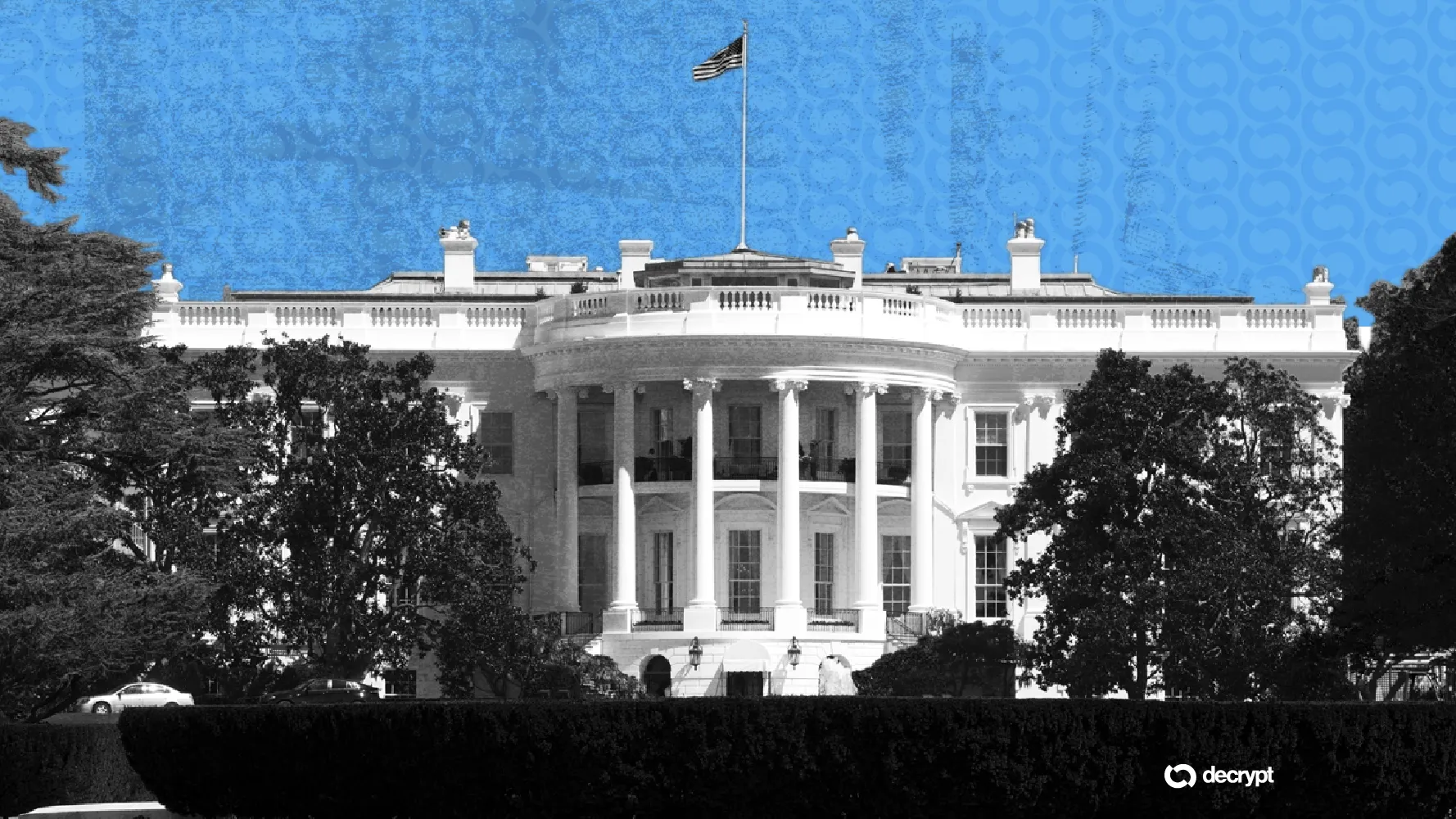In brief
- The White House proposed Congress consider drafting legislation that would force U.S. residents and companies to report foreign crypto accounts on their taxes.
- Not doing so could disadvantage U.S.-based crypto companies, the Trump administration said in a highly anticipated crypto report published Wednesday.
- The 168-page report also included recommendations related to crypto banking, illicit finance, and crypto market structure regulation.
The White House proposed Wednesday that Congress consider enacting legislation obligating U.S. taxpayers to report “foreign digital asset accounts,” in a move the Trump administration said would discourage Americans from moving their crypto offshore.
Such a policy shift would “promote the growth and use of digital assets in the United States and alleviate concerns that the lack of a reporting program could disadvantage the United States or U.S. digital asset exchanges,” the policy proposal said.
The recommendation was one of several proposed in a sprawling, 168-page crypto report published Wednesday by the President’s Working Group on Digital Asset Markets, a body chaired by White House crypto and AI czar David Sacks.
The report laid out policy proposals touching on several crypto-related areas, including market structure legislation, stablecoins, banking, illicit finance, and taxation.
In the taxation section, the Working Group proposed implementing a Crypto-Asset Reporting Framework (CARF) designed to keep crypto activity in the United States.
“The ease of cross-border transfer and access to offshore exchanges enables U.S. taxpayers seeking to evade their tax obligations an offramp to do so,” the report reads. “As the ecosystem matures in the United States, leaving these pathways untouched would create a structural disadvantage for brokers and exchanges domiciled in the United States.”
The White House defined foreign digital asset accounts as those maintained by a foreign digital asset exchange or other foreign digital asset service provider. It clarified, however, that when considering implementing such programs, the IRS and Treasury Department “should not impose any new reporting requirements on DeFi transactions.”
DeFi refers to the financial activity that takes place natively on blockchain networks—the sort that allows crypto users to trade, borrow, and loan crypto assets without third-party intermediaries and without disclosing personally identifiable information.
Other recommendations featured in Wednesday's report include those directing banking regulators to make clearer pathways for crypto banks to engage in traditional banking activities. The Federal Reserve has punted for years on granting coveted master accounts, which allow financial institutions to access the Fed’s services, to crypto-focused banks.
The White House said the banking agencies need to confirm they would not deny a financial institution a master account or bank charter solely because it engages in crypto-related activity.
It further said that if applications for such approvals are delayed beyond stated deadlines, they should be approved by default.
“If regulatory timelines are not met for a given application, the application should be deemed approved absent extraordinary circumstances,” the report said.
Another section of the report, focused on illicit finance, asked FinCEN—a financial crimes-focused organization within the Treasury Department—to evaluate whether the Bank Secrecy Act, a decades-old law requiring financial institutions to assist the U.S. government in rooting out money laundering, should be amended with new language specific to the crypto industry.
Some crypto advocates have argued that crypto users and service providers shouldn’t have to comply with the anti-money laundering law, largely because, they say, the pseudonymous nature of crypto makes adherence to the Bank Secrecy Act untenable.
At a ceremony at the White House on Wednesday afternoon, senior Trump administration officials including David Sacks, Treasury Secretary Scott Bessent, and SEC Chair Paul Atkins all endorsed the report and touted it as a key step forward for U.S. crypto policy.
“Today marks yet another important milestone in unlocking American innovation by providing the crypto marketplace with clear rules of the road,” Atkins said. “I support the [Working Group’s] recommendations and applaud President Trump on his leadership as we ensure that the U.S. is the best and most secure place in the world to invest and to do business.”
Wednesday’s White House crypto report referred to President Trump’s November re-election as “America’s hard fork,” one that has positively reset U.S. crypto policy.
“[These] core recommendations, if implemented,” it said, “will ensure crypto becomes a hallmark of the new American Golden Age.”

